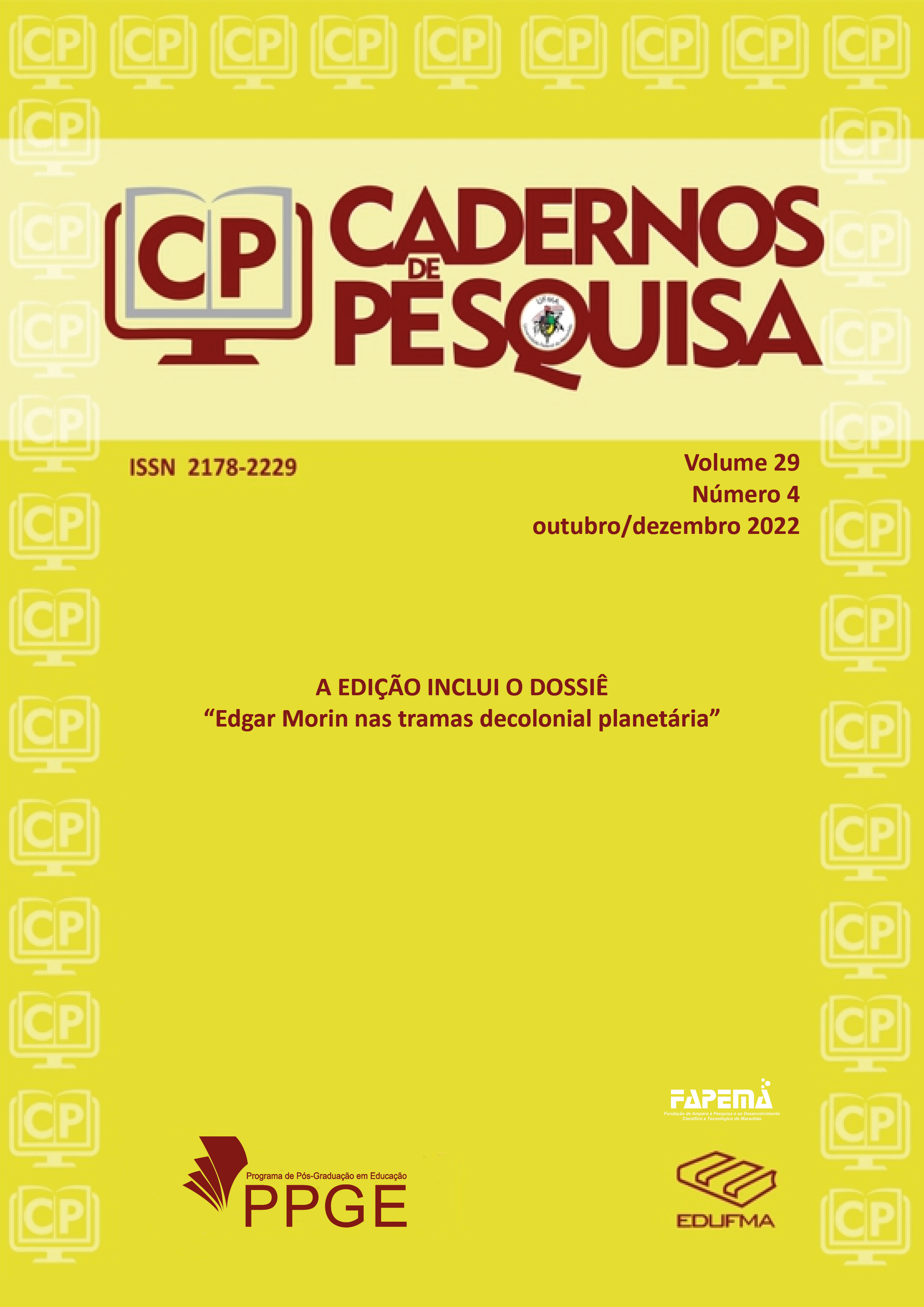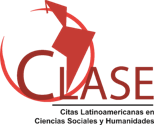COMPLEX THINKING
trying to review a decisive turn
DOI:
https://doi.org/10.18764/2178-2229v29n4.2022.62Keywords:
complex, ontology, epistemologyAbstract
In this text, the author presents some disagreements about Morin’s complex thinking, although he largely agrees with Morin’s epistemological reconstruction. Thought is complex as a cerebral phenomenon, composed of dynamics that we have not even minimally unraveled, that is, in its ontology, but, epistemologically, thought, mainly for evolutionary reasons, is a phenomenon of selective abstraction that naturally
reduces reality to recurrences, preferably invariant. It is therefore always a strategic simplifi cation – we only explain what we simplify. We would not explain the complex using complex speech, which, of course, would
be unintelligible. This reduction is unhealthy in positivism, because it postulates that discursive formalisms are realistic (reality is mathematical, we don’t just reconstruct it using mathematical reductions), but it is common in any analyst who seeks to respect the complexity of reality. Interdisciplinarity is very important for a more
comprehensive view of a reality that, in the end, escapes our formalisms, but is only practicable in a group of
specialists. The individual analyst is disciplinary, not only because of (de)training, but also in order to be able to go deeper – the deepening is naturally disciplinary. Hence the importance of teamwork that mixes disciplines.
Downloads
References
ANDERS, G. You can do anything: The surprising power of a “useless” liberal arts education. New York: Little, Brown and Company, 2017.
ARIELY, D. A Taste of Irrationality: Sample chapters from Predictably Irrational and Upside of Irrationality. New York: Harper Collins, 2010.
ARIELY, D. The Honest Truth About Dishonesty: How We Lie to Everyone – Especially Ourselves. New York: Amazon, 2012.
BRASIL. Educação é a Base. MEC, Brasília, 2018. Disponível em: http://basenacionalcomum.mec.gov.br/images/BNCC_EI_EF_110518_versaofinal_site.pdf. Acesso em: 26 jul. 2022.
BELLAH, R.N. Religion in Human Evolution – From the Paleolithic to the axial age. Cambridge: The Belknap Press of Harvard University Press, 2011.
BOFF, L. Espiritualidade - um caminho de transformação. São Paulo: GMT, 2006.
BORING, E.G. Intelligence as the tests test it. New Republic, v. 36, p. 35-37. Disponível em: https://brocku.ca/MeadProject/sup/Boring_1923.html. Acesso em 26 jul. 2022.
BOURDIEU, P. Homo Academicus. Stanford: Stanford University Press, 1990.
BREINES, I., CONNELL, R., EIDE, I. (Eds.). Male roles, masculinities and violence – A culture of peace perspective. UNESCO, 2000. Disponível em: https://unesdoc.unesco.org/ark:/48223/pf0000120683. Acesso em 26 jul. 2022.
BRYNIE, F.H. 2009. Brain Sense: The science of the senses and how we process the world around us. New York: AMACOM, 2009.
BRYSON, B.P.; DAVIS, A.K. Conquering stereotypes in research on race and gender. Sociological Forum, v. 25, n. 1, p. 161-166, 2010.
COSTANDI, M. Neuroplasticity. Cambridge: The MIT Press, 2016.
DAVIES, P. The demon in the machine. London: Penguin, 2019.
DAWKINS, R. The God Delusion. New York: Houghton Mifflin Company, 2006.
DEACON, T.W. Incomplete Nature – How mind emerged from matter. New York: W.W. Norton & Company, 2012.
DELPIT, L. “Multiplication is for white people”: Raising expectations for other people’s children. London: The New Press, 2012.
DEMO, P. Pesquisa e informação qualitativa. Campinas: Papirus, Campinas, 2001.
DEMO, P. Forças e fraquezas do positivismo. 2001. https://docs.google.com/document/d/e/2PACX--1vTN0QxDDsQI85ADHBuQRVe_mEkVVfLV3dj6PB-mioHtKH7nkIIYSTILr7xP5RnYsNT7H-P_J3iIqoll/pub
DEMO, P. Felicidade como renúncia. 2013. https://docs.google.com/document/d/1qVjphapB8hVIsxsWYNmktyRbG8kdCs0lASf6puTbesQ/pub
DEMO, P. Aprender como autor. São Paulo: Gen, 2015.
DIENER, E., SANDVIK, E., PAVOT, W. Happiness is the Frequency, not the Intensity, of positive versus negative affect. In: Strack, F. et alii (Orgs.). Subjective Well-being: An interdisciplinary perspective. New York, Pergamon Press, p. 119-139, 1991.
DOIDGE, N. The Brain That Changes Itself: Stories of Personal Triumph from the Frontiers of Brain Science. London: Penguin, 2007.
DYSON, F. 2006. The Scientist as Rebel. New York: New York Review Books, 2006.
EDELMAN, G.M.; TONONI, G. 2000. A Universe of Consciousness – How matter becomes imagination. New York: Basic Books, 2000.
ENGELS, F. 1979. Dialética da Natureza. Rio de Janeiro: Paz e Terra, 1979.
ERICSSON, A. & POOL, R. 2016. Peak: Secrets from the new science of expertise. New York: Eamon Dolan/Houghton Mifflin Harcourt, 2016.
FOUCAULT, M. 2000. A ordem do discurso. São Paulo: Loyola, 2000.
GEE, J.P. Situated Language and Learning - A critique of traditional schooling. New York: Routledge, 2004.
GELB, M.J. 1998. How To Think Like Leonardo da Vinci – Seven steps to genius every day. New York: A Dell Trade Paperback, 1998.
GELERNTER, D. The tides of mind: Uncovering the spectrum of consciousness. New York: Liveright, 2016.
GOBER, M. An end to upside down thinking: Dispelling the myth that the brain produces consciousness, and the implications for everyday life. New York: Waterside Press, 2018.
GOLDSTEIN, R. Incompleteness: The proof and paradox of Kurt Gödel. New York: Norton & Company, 2006.
GORENDER, J. Marxismo sem Utopia. São Paulo: Editora Ática, 1999.
HAACK, S. 2019. Belief in Naturalism: An epistemologist’s philosophy of mind. Topics in Metaphysics. In Stelmach, J. et alii (Eds.). The Normative Mind. U. of Miami Press, p. 229-249, 2019.
HAIDT, J. 2012. The Righteous Mind: Why good people are divided by politics and religion. New York: Pantheon, 2012.
HARARI, Y.N. 2015. Sapiens: A brief history of humankind. London: Harper, 2015.
HARARI, Y.N. 2017. Homo Deus – A brief history of tomorrow. London: Harper, 2017.
HARARI, Y.N. 21 Lessons for the 21st century. New York, Spiegel and Grau, 2018.
HARRIS, A. Conscious: A brief guide to the fundamental mystery of the mind. Harper, 2019.
HARRIS, S. Waking up: A guide to spirituality without religion. New York: Amazon, 2014.
HAWKING, S.W. 2006. The Theory of Everything: The origin and fate of the universe. Beverly Hills: Phoenix Books, 2006.
HECHT, Jennifer M. Doubt – A History – The great doubters, their legacy of innovation from Socrates and Jesus to Thomas Jefferson and Emily Dickinson. New York: HarperSanFrancisco, 2003.
KAHNEMAN, D. Thinking, Fast and Slow. New York: Penguin, 2011.
KAUFFMAN. S.A. A world beyond physics: The emergence and evolution of life. Oxford : Oxford U. Press, 2019.
KAUFMAN, S. Ungifted: Intelligence redefined. New York: Basic Books, 2013.
KOCH, C. Consciousness – Confessions of a romantic reductionist. Cambridge: The MIT Press, 2012.
KOCH, C. The feeling of life itself – Why consciousness is widespread but can’t be computed. MIT Press, 2019.
KONDER, L. A Derrota da Dialética. Rio de Janeiro: Ed. Campus, 1988.
KOTLER, S. The rise of superman: Decoding the science of ultimate human performance. Amazon Publishing. 2014.
KRAUSS, L., HITCHENS, C., DAWKINS, R. A Universe from Nothing. New York: Free Press, 2012.
KUHN, T.S. A Estrutura das Revoluções Científicas. São Paulo: Ed. Perspectiva, 1975.
KURZBAN, R. Why Everyone (Else) is a hypocrite: Evolution and the modular mind. Princeton: Princeton University Press, 2010.
KURZWEIL, R.; BISSON, T. How to create a mind: The secret of human thought revealed. New York: Duckworth Overlook, 2013.
LASZLO, E. (with Alexander Laszlo, Deepak Chopra, and S. Grof). What is reality? The new map of cosmos, consciousness, and existence. New York: SelectBooks, 2016.
LATOUR, B. An Inquiry into Modes of Existence – An anthropology of the moderns. Cambridge: Harvard University Press, 2013.
LAURILLARD, D. Rethinking University Teaching. Abington: Taylor & Francis, 2007.
LAVE, J. & WENGER, E. Situated Learning: Legitimate Peripheral Participation (Learning in Doing: Social, Cognitive and Computational Perspectives). Cambridge: Cambridge University Press, 1991.
MARX, K. Contribuição para a Crítica da Economia Política. Lisboa: Estampa, 1973.
MORIN, E. Introdução ao pensamento complexo. Sulina, P. Alegre, 2005.
MORIN, E. 2006. Saberes globais e saberes locais – O olhar transdisciplinar. Garamond, 2006.
MORIN, E. Conhecimento, ignorância, mistério. Bertrand, 2020.
NAGEL, T. Mind and Cosmos: Why the materialistic neo-Darwinian conception of nature is almost certainly false. New York: Audible Studios, 2012.
NOWAK, M. (with Highfield, R.). SuperCooperators: Altruism, evolution, and why we need each other to succeed. New York: Free Press, 2011.
POERKSEN, B. 2004. The Certainty of Uncertainty – Dialogues introducing constructivism. London: Imprint Academic, 2004.
PRIGOGINE, I. & STENGERS, I. A Nova Aliança. Brasília: Ed. UnB, Brasília, 1997.
PRIGOGINE, I. O Fim das Certezas – Tempo, caos e as leis da natureza. São Paulo: Ed. UNESP, 1996.
RAMIREZ, A. Save Our Science: How to Inspire a New Generation of Scientists. New York: TED Conferences, 2013.
RASMUSSEN, D.C. The infidel and the professor: David Hume, Adam Smith, and the friendship that shaped modern thought. Princeton: Princeton U. Press, 2018.
ROTHMAN, T.; SUDARSHAM, G. Doubt and Certainty - The celebrated academy. Massachusetts: Perseus Books, Reading, 1998.
RUSHKOFF, D. Team Human. W.W. New York: Norton & Company. 2019.
SAWYER, K. Group Genius - The creative power of collaboration. New York: Basic Books, 2007.
SEMERYN, K. 2019. The conquest and resistance, a woman and a man: Feminist and imagonogical reading of W.S. Maugham’s “Rhe Unconquered”. Accents and Paradoxes of Modern Philology, v.1, n. 4, p.109-119, 2019.
SHERMER, M. Heavens on Earth: The scientific search for the afterlife, immortality and utopia. Robinson, Amazon Digital Service, 2018.
SUNSTEIN, C.R. Conformity: The power of social influences. NYU Press.
TEGMARK, M. Life 3.0: Being human in the age of artificial intelligence. New York: Knopf. 2017.
WILSON, E.O. & HASS, R. The Poetic Species: A Conversation with Edward O. Wilson and Robert Hass. New York: Belevue Literary Press, 2014.
WILSON, E.O. The Social Conquest of Earth. New York: Amazon, 2012.
Downloads
Published
How to Cite
Issue
Section
License
Copyright (c) 2022 Cadernos de Pesquisa

This work is licensed under a Creative Commons Attribution 4.0 International License.
A Cadernos de Pesquisa está licenciada com uma Licença Creative Commons Atribuição 4.0 Internacional.




















